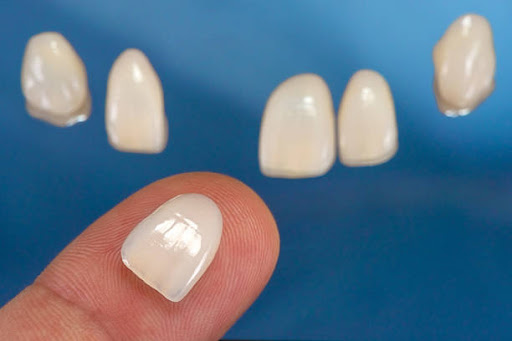
Our patients often ask us how to improve the appearance of stained teeth or how to close the gaps between their teeth. When it comes to improving your smile, veneers are an option you may consider. When deciding if veneers would be a good choice for you, consider the following factors:
Veneers: what is it?
Dental veneers are thin, custom-made shells placed over the front of the teeth to enhance their appearance. They can conceal stains, chips, and uneven surfaces of the teeth. Veneers are usually made of dental porcelain and are designed to cover teeth rather than replace them.
How do veneers work?
Veneers can repair chipped or broken teeth, reduce noticeable gaps between teeth, or remove stains from teeth. When veneers are placed over your teeth, the structure of your teeth is not altered. The dentists carefully measure each tooth’s size to ensure a perfect fit.
When choosing veneers, consider these factors:
- Veneers are affixed to the teeth and can only be removed by a dentist. Generally, veneers last between 15 and 20 years, although it is possible for them to last longer.
- With porcelain veneers, people often assume that whiter is better, but this is not always the case. You should choose a shade that looks natural.
- A veneer is similar to a tooth in that it can chip and crack, so people need to take precautions when wearing one. It is possible to use them for many years without much maintenance, but some considerations need to be made.
- There are some people who get veneers on all of their teeth, but it is not always necessary. There are times when just a few teeth require veneers.
- Porcelain veneers are generally preferred over resin veneers because they are more stain-resistant. Although proper oral hygiene is still necessary, these veneers are less likely to discolor.
- Right now, veneers are in great demand, but that does not mean that everyone can get them. A dentist must examine patients before approving them for veneers.
- Veneers and implants are two different things. A veneer is attached to the natural tooth, which acts as a base. The veneer is very thin, so it does not protrude.
- They are not covered by most insurance policies. Individuals are encouraged to contact their insurance provider to determine if this procedure is covered.
The use of veneers is a great way to correct minor tooth issues like discoloration, gaps, and misalignment. If you would like to know if you are a good candidate for veneers, contact our office to schedule an appointment. We can provide you with detailed information on how to obtain the smile you have always wanted.





